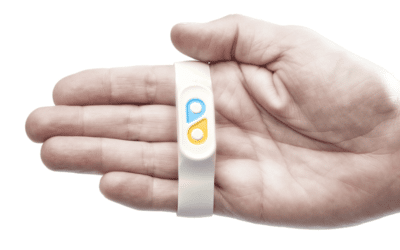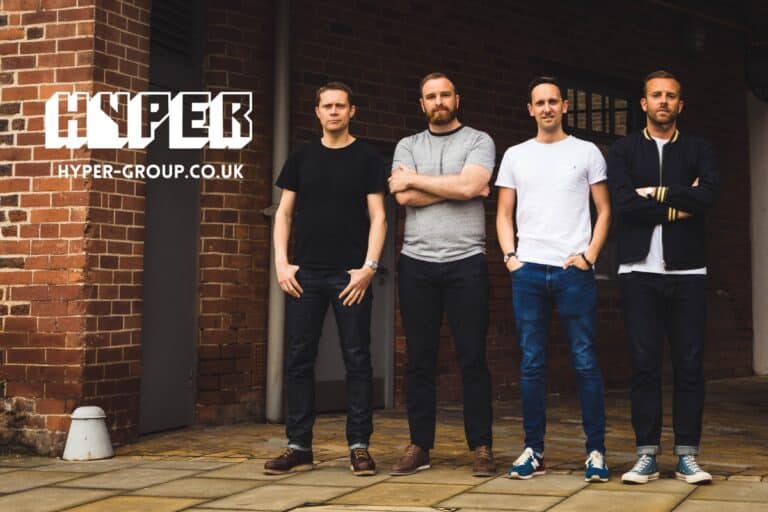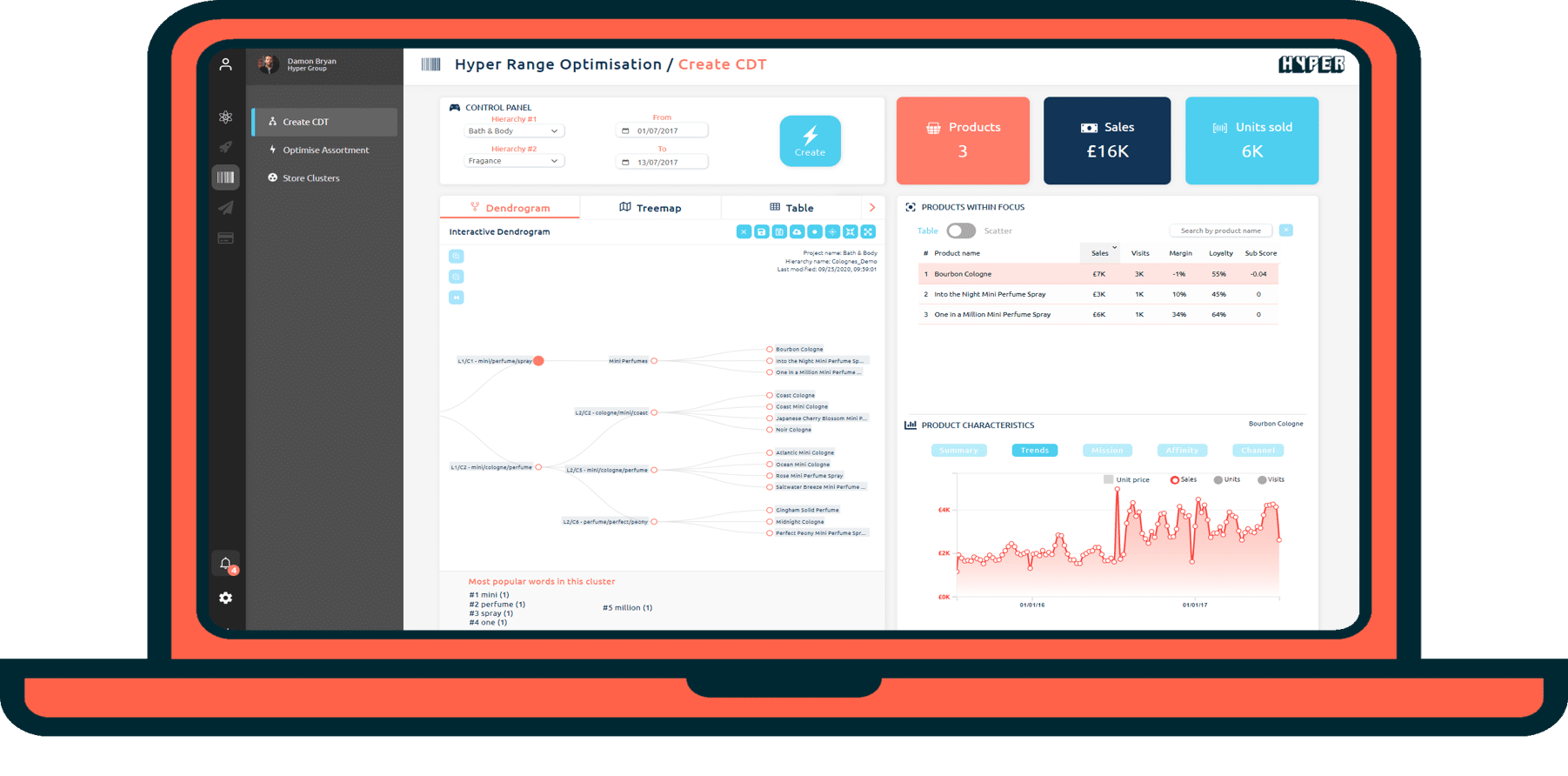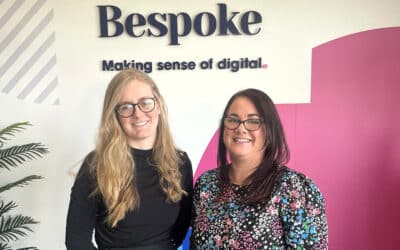A Leeds data agency specialising in AI-powered decision making is planning to double its headcount and roll out an improved SaaS product after its recent successes with the likes of Asda and the NHS.
Hyper Group currently uses a combination of AI-powered software and consulting to give its clients ‘hyper’ personalised insights about how their customers act and think.
The platform ‘connects the dots’ of data about customer’s buying and browsing behaviour, creating insights for optimised marketing, merchandising and supply chain performance.
Its four co-founders Damon Bryan, Adam Barrowcliff, Thomas Hill and Director of Business Growth Peter Denby began trading as the bootstrapped firm in May 2019.
“Our goal is to build a central analytics engine that is used to inform decisions right across a retail business, as a sort of brain for optimising retail decisions” Denby explained to Prolific North.
“The big opportunity that we see is not just applying AI in one small pocket of the business, but having a central engine to optimise decision making right across the business and unify decisions.”
The company is now 11-strong having brought on data scientists and software engineers.
It plans to double its workforce in the next 12 months, taking its staff to 22, and Denby said it would also consider investment.
“The ambition is to scale the business rapidly, and the way to do that is to scale our product out further,” explained Denby.












